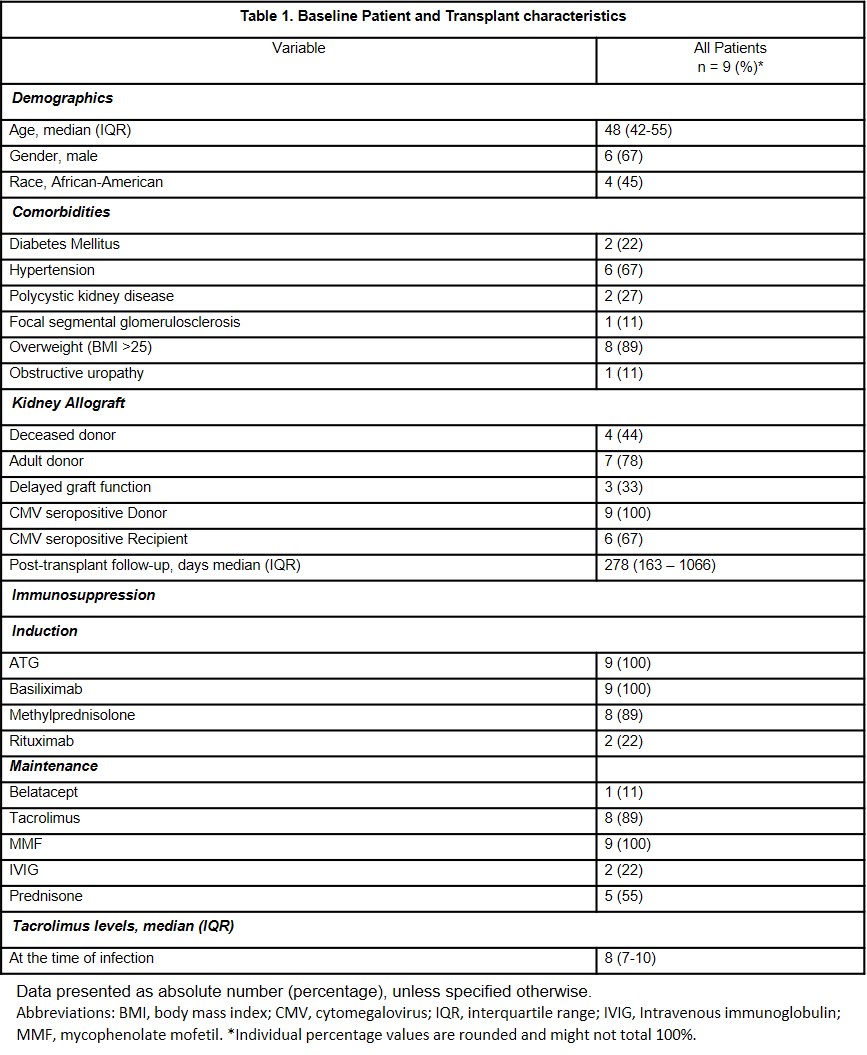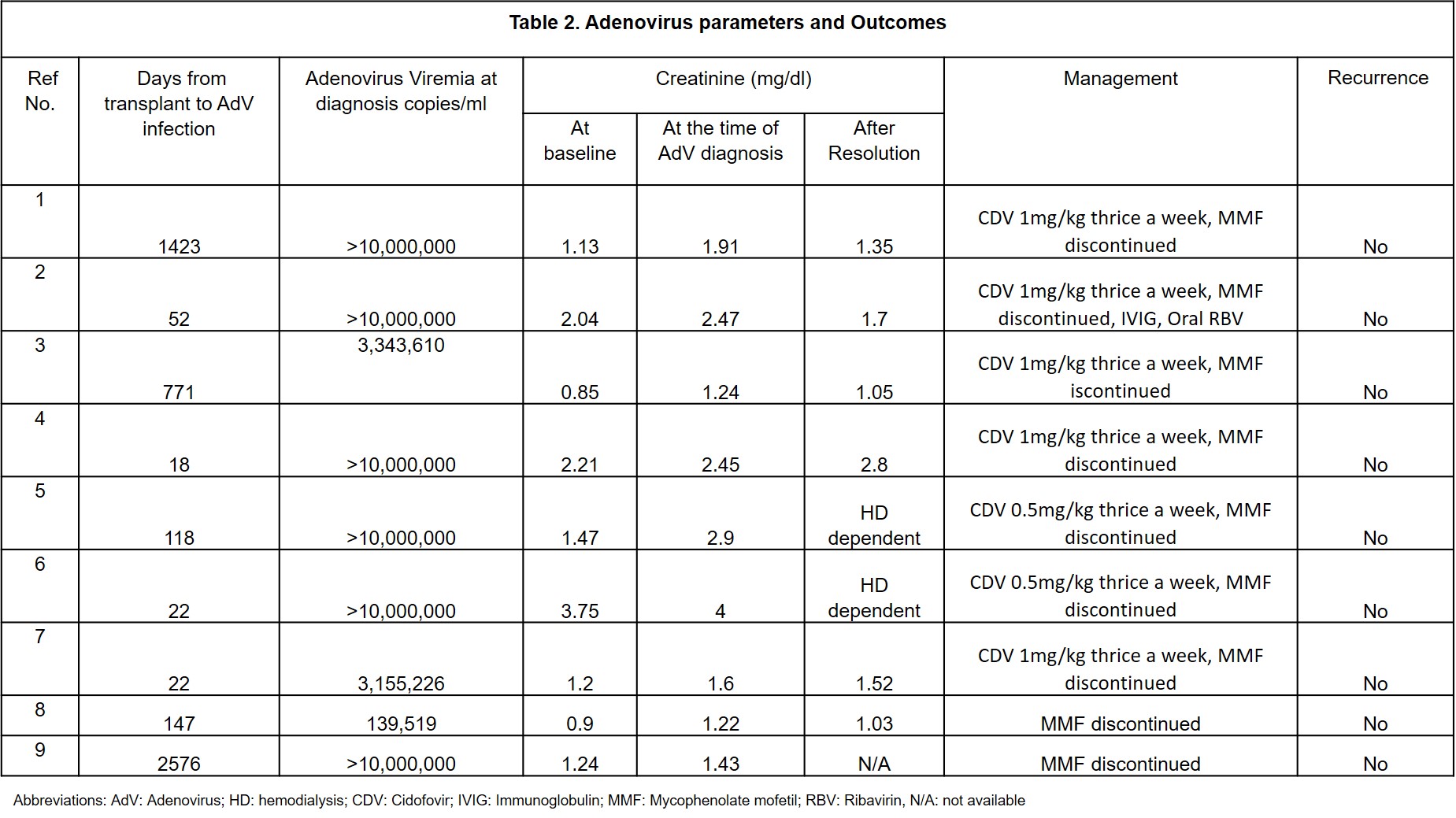Adenovirus Infection in Kidney Transplant Recipients: A Case Series
S. Anjan, Y. Natori, M. Raja, J. Camargo, J. Simkins, M. Morris, A. Fernandez, G. Ciancio, L. Chen, G. Burke, M. Ortigosa-Goggins, J. Pagan, A. Mattiazzi, G. Guerra, L. Abbo
University of Miami/Jackson Memorial Hospital, Miami, FL
Meeting: 2020 American Transplant Congress
Abstract number: A-204
Keywords: Adenoviruses, Infection, Kidney transplantation, Outcome
Session Information
Session Name: Poster Session A: Kidney Infectious Excluding Polyoma & Viral Hepatitis
Session Type: Poster Session
Date: Saturday, May 30, 2020
Session Time: 3:15pm-4:00pm
 Presentation Time: 3:30pm-4:00pm
Presentation Time: 3:30pm-4:00pm
Location: Virtual
*Purpose: Adenovirus (AdV) is associated with poor outcomes in immunosuppressed patients and data on incidence and management in kidney transplant (KT) recipients is limited.
*Methods: Single center retrospective case series of patients with AdV DNAemia, detected by quantitative polymerase chain reaction, who underwent KT between 2012 and 2019.
*Results: 9 consecutive cases were identified (table 1). All patients were symptomatic with fever (100%), dysuria (89%), hematuria (89%) and diarrhea (44%). Median time of developing AdV infection from transplant was 118 (18-2576) days. A rise in creatinine likely due to nephritis was seen in all patients at the time of AdV infection (table 2) with biopsy proven rejection seen in 34% subsequently. First, immunosuppressants mycophenolate mofetil and belatacept were discontinued in all patients. In addition, cidofovir (CDV) was utilized in 78% patients who had worsening of symptoms, while in 22% clinical symptoms resolved after decrease of immunosuppression alone. Median time to resolution of viremia was 35 (8-49) days. We noted marginally elevated tacrolimus levels median 8 (IQR, 7-10) in this cohort which could be a risk factor for AdV infection. Patient and death censored graft survival at 3 month follow up post-AdV disease were 89% and 78% for the entire cohort.
*Conclusions: Clinical suspicion is needed for timely diagnosis and management of AdV infections in KT recipients. Lowering immunosuppression and treating with cidofovir was generally effective in this cohort. Balancing decreasing immunosuppression and monitoring AdV to maintain graft function and avoid graft loss is extremely important considering that CDV is also nephrotoxic. Further studies are needed to determine risk factors of AdV infection, optimal treatment, and long term clinical and graft outcomes.
To cite this abstract in AMA style:
Anjan S, Natori Y, Raja M, Camargo J, Simkins J, Morris M, Fernandez A, Ciancio G, Chen L, Burke G, Ortigosa-Goggins M, Pagan J, Mattiazzi A, Guerra G, Abbo L. Adenovirus Infection in Kidney Transplant Recipients: A Case Series [abstract]. Am J Transplant. 2020; 20 (suppl 3). https://atcmeetingabstracts.com/abstract/adenovirus-infection-in-kidney-transplant-recipients-a-case-series/. Accessed February 25, 2026.« Back to 2020 American Transplant Congress


